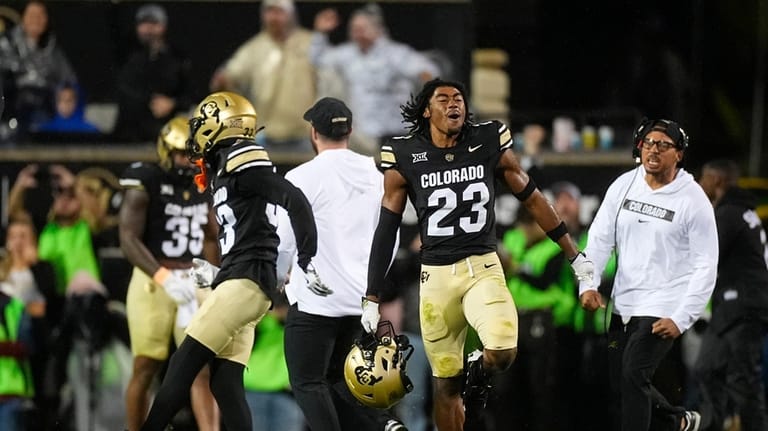Deion Sanders, the revered head coach of the Colorado Buffaloes, has made a triumphant return to the football field, inspiring a renewed sense of purpose and elevated team spirits following his courageous battle with bladder cancer. His presence, deeply missed during his absence, serves as a powerful testament to resilience and leadership within the demanding world of college football.
For players like Colorado defensive back Carter Stoutmire, Coach Sanders is far more than just a mentor; he embodies a familial bond. Stoutmire, whose father Omar played alongside Sanders for the Dallas Cowboys in the 1990s, regards the coach as an uncle, a relationship that has existed since his earliest memories. This profound personal connection underscores the deep impact Sanders has on his players’ lives, extending beyond the gridiron.
Sanders recently disclosed the private and arduous journey he undertook to overcome an aggressive form of bladder cancer. This involved a significant surgical procedure to remove his bladder, followed by the intricate reconstruction of a section of his intestine to serve its function. The revelation sent ripples through the collegiate athletic community, highlighting the personal sacrifices often made behind the scenes.
The immediate effect of Sanders’ return on the Colorado Buffaloes has been palpable. Defensive back Carter Stoutmire described his coach’s booming voice and characteristic swagger at camp as a “breath of fresh air,” echoing the sentiments of the entire team. Safety DJ McKinney further emphasized the collective feeling, noting that “everybody just has a chip on their shoulder,” energized by Coach Prime’s invigorating presence.
Sanders’ influence extends far beyond mere coaching; he has fundamentally reshaped the program’s trajectory, notably by attracting key talent like Carter Stoutmire as part of his inaugural high school recruiting class at Colorado. This ability to inspire deep loyalty and commitment has been a hallmark of his tenure, contributing significantly to the team’s evolving identity in NCAA football.
During Sanders’ recovery, his veteran coaching staff, including prominent figures like Pat Shurmur, Warren Sapp, and Marshall Faulk, adeptly maintained the team’s momentum. Defensive coordinator Robert Livingston lauded Sanders’ leadership style, noting how it cultivates a culture where “people just go to work.” This seamless operational continuity during a challenging period highlighted the strength and unity of the Buffaloes’ coaching ensemble.
The Colorado Buffaloes enter the upcoming season aiming to build on their impressive 9-4 record from the previous year, which culminated in an Alamo Bowl appearance. Despite facing significant roster changes, including the departures of NFL-bound stars like quarterback Shedeur Sanders (Cleveland Browns) and Heisman Trophy winner Travis Hunter (Jacksonville Jaguars), the renewed team spirits under Coach Sanders are expected to be a key factor in navigating these transitions.
Beyond his coaching duties, Deion Sanders utilized his recent press conference to advocate for proactive healthcare, a message born from his own experience. His cancer was detected early through an annual CT scan, a precautionary measure due to a history of blood clots. This personal testimony serves as a vital reminder to athletes and the public alike about the importance of regular health checks, promoting wellness beyond the competitive arena.






Leave a Reply